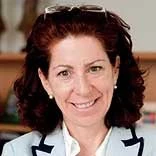 |
| Photo © World Bank |
The booklet draws attention to the urgent need to tackle the varied impacts of climate change on Africa’s agriculture, forests, food security, energy, water, infrastructure, health, and education. The continent’s natural fragility means that changes in rainfall patterns, increased droughts and floods, and sea level rise are already causing damage and affecting people’s lives.
A recent post by a Masai cattle owner Sam Stanyaki highlights the plight of livestock-owners in Kenya during an extended drought. This is a striking example of the kind of tragic losses that climate change could inflict in future with more frequent droughts, and inadequate adaptation measures.
 |
 |
 |
 |
| Click here to see a larger image |
These maps show country exposure across Africa to floods, drought, sea level rise, and cyclones.
The booklet also outlines the World Bank’s strategy for Africa, which rests on four “pillars”: (i) Make adaptation and climate risk management core elements of development policies and projects; (ii) Take advantage of mitigation opportunities; (iii) Invest on knowledge and capacity development; and (iv) Scale up financing.
What is needed in the region, as elsewhere in the world, is “climate-smart” policymaking that might, for instance, pay more attention to land and water management in anticipation of tomorrow’s climate, and to the spread of diseases like malaria—steps which would be good for growth and prosperity.
Climate-smart policies would help people help themselves, that is, integrate adaptation into development. Such policies would help build safer cities (Africa’s urban population is set to exceed the rural by 2030); assist people to stay healthy; prepare for extreme weather events (for example with flood risk maps); provide many layers of insurance protection; implement adaptation at the community level; and provide social safety nets to protect the most vulnerable.
Ethiopia’s Productive Safety Net, for instance, combines permanent social assistance through a workfare program targeted at 6 million food-insecure households with scalable safety nets that can be rapidly expanded during a major drought.
Managing land and water better is another key element of “climate smartness”. By 2050 Africa will need to feed more people in a harsher climate. So the region must get more from agriculture, manage water resources better, protect ecosystems, and invest in information services. For example, flood warnings can reduce damage by up to 35 percent (UN, 2004).
My colleague Julia Bucknall blogged recently about a carbon sequestration project in Kenya that employs land-use strategies that could help Africa (and the world) win the battle against climate change.
Access to energy is a major issue in the region, where only 24 percent of the population has access to electricity and 25 countries are in a state of power crisis. Burning biomass for cooking fuel is a significant health hazard, but millions have no choice but to do so.
It is clear that Africa needs more access to energy urgently. There is huge potential for renewable energy sources such as hydropower (the region currently exploits only about 8 percent of hydro resources), but to permit growth and reduce energy poverty in the short term, some countries, in the absence of any other economically viable alternative, will need to draw on non-renewable resources, including coal.
Finally, climate-smart policies would strengthen Africa’s knowledge infrastructure—particularly that of universities, research institutes and firms. Professor Calestous Juma, who blogged recently about a climate for change in Africa notes that most donor assistance to Africa does not yet address the need to harness the world’s existing fund of knowledge for long-term development.
Acting now on all these fronts—with suitable assistance from rich countries in terms of finance as well as technology—will help ensure that Africa does not miss out on the opportunity to become an exciting center of economic growth in the evolving global economy.


Join the Conversation